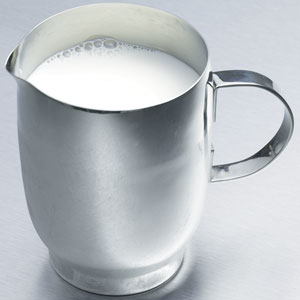ARLINGTON, VA – The National Milk Producers Federation (NMPF) today expressed thanks to Agriculture Secretary Sonny Perdue for his agency’s prompt implementation of changes in the dairy Margin Protection Program (MPP), and urged dairy producers to review the new coverage options available under the improved program, which will have a new enrollment window from April 9-June 1, 2018.
“We appreciate the steps taken by USDA to implement the new MPP provisions. It is important to provide information on the changes to dairy farmers so they can make informed decisions about enrollment in the program for this year, and we look forward to assisting the department in this effort,” said NMPF President and CEO Jim Mulhern.
The U.S. Department of Agriculture (USDA) announced today that it will re-open the sign-up period next week, and encouraged producers to take a second look at the program since it was revised under the Bipartisan Budget Act passed by Congress in February.
“NMPF worked with Congress during the past year to improve the dairy safety net to make it more effective for all farmers,” Mulhern said. “While the previous structure of the program offered an inadequate safety net, the changes made this year greatly enhance the value of the program to farmers, and we really want them to consider how to use this program in 2018. With these changes in place, we will continue to work with USDA and Congress to further strengthen the program in the 2018 Farm Bill.”
According to USDA, dairy producers must select new coverage for 2018, even if they enrolled during the previous sign-up period last fall. Coverage choices made this spring for calendar year 2018 will be retroactive to Jan. 1, 2018. All dairy operations desiring coverage must sign up during the eight-week enrollment period. USDA also announced that dairy producers can participate in either MPP or the Livestock Gross Margin program for dairy (LGM-Dairy), but not both.
The changes to the MPP were part of a larger dairy package that was included in the disaster spending bill passed by Congress two months ago. The provisions include:
- Adjusting the first tier of covered production to include every dairy farmer’s first five million pounds of annual milk production history (about 217 cows) instead of four million pounds
- Reducing the premium rates, effective immediately, for every producer’s first five million pounds of production history, to better enable dairy farmers to afford the higher levels of coverage;
- Modifying the margin calculation to a monthly (from bi-monthly) basis;
- Raising the catastrophic coverage level from $4.00 to $5.00 for the first tier of covered production for all dairy farmers; and
- Waiving the annual $100 administrative fees for underserved farmers.
The disaster package also lifted the $20 million annual cap on all livestock insurance, including the Livestock Gross Margin (LGM) program. This will allow USDA to develop a wider variety of additional risk management tools.
To the right is the updated premium chart following the MPP changes.
USDA’s web tool allows dairy farmers to quickly and easily combine unique operation data and other variables to calculate their coverage needs based on price projections. NMPF’s Future for Dairy website also offers informative resources and tools to help farmers determine the best insurance options for their operations.
###
The National Milk Producers Federation (NMPF), based in Arlington, VA, develops and carries out policies that advance the well-being of dairy producers and the cooperatives they own. The members of NMPF’s cooperatives produce the majority of the U.S. milk supply, making NMPF the voice of dairy producers on Capitol Hill and with government agencies. For more on NMPF’s activities, visit our website at www.nmpf.org.


 The National Milk Producers Federation (NMPF) and the International Dairy Foods Association (IDFA) applauded the withdrawal this week of a series of bills in the Tennessee state legislature that could have increased consumers’ risk of foodborne illness by encouraging the use of raw milk.
The National Milk Producers Federation (NMPF) and the International Dairy Foods Association (IDFA) applauded the withdrawal this week of a series of bills in the Tennessee state legislature that could have increased consumers’ risk of foodborne illness by encouraging the use of raw milk. The National Milk Producers Federation (NMPF) and the International Dairy Foods Association (IDFA) applauded the withdrawal this week of a series of bills in the Tennessee state legislature that could have increased consumers’ risk of foodborne illness by encouraging the use of raw milk.
The National Milk Producers Federation (NMPF) and the International Dairy Foods Association (IDFA) applauded the withdrawal this week of a series of bills in the Tennessee state legislature that could have increased consumers’ risk of foodborne illness by encouraging the use of raw milk. Morgan Beach has joined National Milk as Manager for Trade Policy. She will work under Shawna Morris, vice president of trade policy, contributing to NMPF’s trade policy team work on a variety of key issues, including NAFTA, future U.S. trade agreements, geographical indications and various trade barrier concerns.
Morgan Beach has joined National Milk as Manager for Trade Policy. She will work under Shawna Morris, vice president of trade policy, contributing to NMPF’s trade policy team work on a variety of key issues, including NAFTA, future U.S. trade agreements, geographical indications and various trade barrier concerns.



